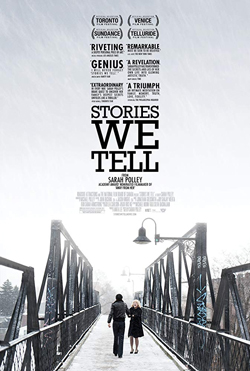YouTube Link: https://www.youtube.com/watch?v=A_8BnZ471GY
Copyright © 2018 Edusites. All rights reserved. Permission granted to reproduce for educational use within the subscribing school only. Copying or lending of any part of this document in any form or by any means to external bodies and / or individuals is prohibited.
Context
Cinema is always evolving and it’s an exciting process to witness, to explore and to understand. A film such as Stories We Tell is just one example of many notable films that have gone quite some way in transcending its original moment of release to become something of a landmark in contemporary cinema. In this instance, we are considering a film that reinforced the value and interest of the documentary form as a globally popular and highly regarded form of cinema.
A documentary film, Stories We Tell provokes a range of considerations around the filmic treatment of a subject and the role of the ‘author’ of a film and their ‘role’ in that film. Related to our thinking about this it’s worth referring to a very useful book that typically finds its way into undergraduate reading lists but which would be well-placed in libraries for A Level Film Studies students it is Michael Rabiger’s book Directing the Documentary Film. In that volume, Rabiger says…
